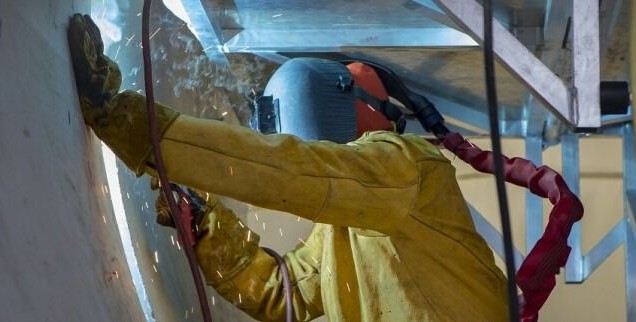A new plan to help drive a more diverse workforce into the nuclear sector is being put into place with the hope of attracting younger people and more women into the industry.
Fifty percent of recruits to the nuclear sector need to be female if the UK is to reach the target set by the Government in its Nuclear Sector Deal of women making up 40% of the workforce by 2030.
An ageing workforce also means skills need to be replaced with a more diverse workforce of people from all backgrounds and sectors to fully represent the population.
The current supply chain and opportunities available at such a major project as Hinkley Point C in Somerset are the perfect platform to do this, according to skills experts and will help put the South West at the forefront of the industry worldwide.
Data from Nuclear South West shows that across ten sites in the region, only 13% of the workforce in both civil and defence roles are women.
Beccy Pleasant, Head of Nuclear Skills for the Nuclear Skills Strategy Group (NSSG) is working to bring a business case for the £1.7m Skills Delivery Plan which aims to ensure UK skill demand from the future nuclear civil and defence programme can be met through a highly skilled and diverse workforce.
“We currently have around 22% of women working in the nuclear sector across all levels, and many fewer at senior levels. That can and should be better.
“We need to excite the next generation and get them thinking more about a career in nuclear. And as an industry, we need to move away from the perception that we only have highly technical roles, or work requiring highly-qualified people with a scientific background. While we need those roles, we also need employees who are skilled in work like cable-pulling and welding, as well as engineers and project managers who might be working in other sectors.”
Once of the key objectives of the plan is to develop the ‘NextGen Nuclear’ project – the first of its kind ‘whole sector’ approach to improving outreach and careers activity, to help bridge the gap between the sector and schools and prepare young people for a career in the industry.
When underway, it will provide a digital portal to support the industry, helping to develop enhanced work experience programmes using Virtual and Augmented Reality and looking at new resources for teaching staff.
Matt Burley, Nuclear South West Chair said:
“It’s an exciting time for the sector and we are really pleased to be able to bring such an expert panel of speakers together who are right at the forefront of the industry. They will be discussing the current and future prospects for businesses – here in the region and across the UK – who can benefit from the vast opportunities the sector has to offer, from new build like HPC through to decommissioning.”
Nuclear South West aims to establish further opportunities for companies based in the South West, as well as around the UK, to capitalise on the region’s unparalleled strength and potential in the global nuclear industry and build links with overseas companies.




















